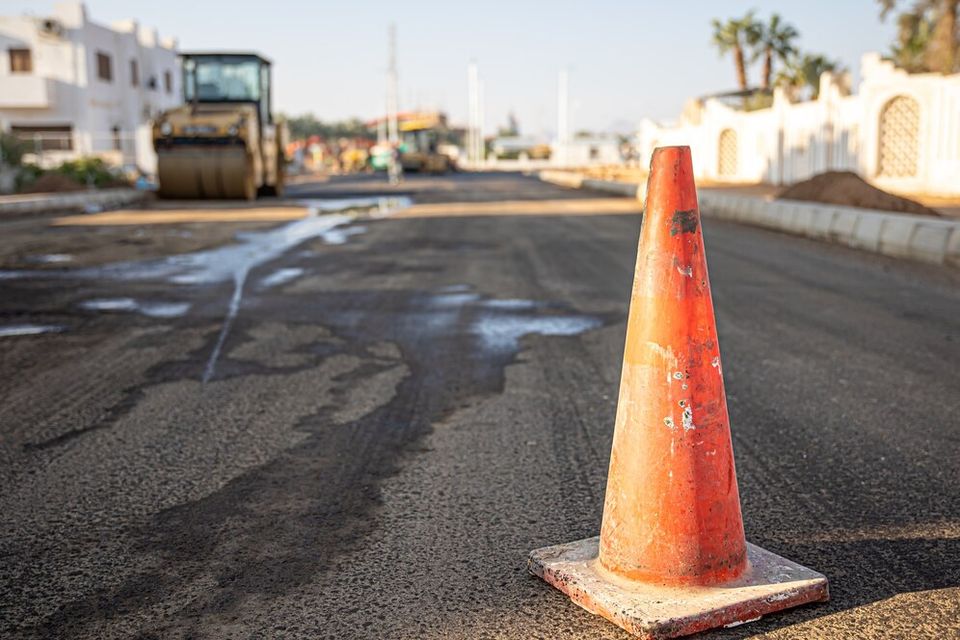Excessive soil moisture is a formidable challenge faced by construction and civil engineering professionals, particularly in roadway construction. High moisture content can compromise the integrity, stability, and load-bearing capacity of subgrade and pavement materials, leading to premature failure and costly repairs. As such, incorporating effective Soil Dry Down techniques into your construction plans is essential to control moisture and maintain optimal performance, regardless of weather conditions or soil type.
In this blog, we delve into the crucial role of Soil Dry Down in addressing moisture-related challenges in roadway construction. We explore different methods for achieving the desired moisture content in soils, examine factors influencing the selection and success of these techniques, and provide valuable insights into best practices for monitoring and managing moisture levels throughout the construction process. By mastering Soil Dry Down methods, construction professionals can mitigate adverse conditions, reduce project delays, and enhance the durability and longevity of roadway infrastructure.
As a trusted provider of Asphalt Pulverization, Soil Improvement & Modification, Soil Stabilization, and Full-Depth Reclamation services, Terra-Firma Stabilization & Reclamation is your go-to partner for expertise in Soil Dry Down and other innovative construction solutions. Join us as we reveal the transformative power of Soil Dry Down, and discover how partnering with Terra-Firma Stabilization & Reclamation can pave the way for success in your roadway construction projects, regardless of the challenges posed by moisture.
The Impact of Excessive Soil Moisture on Roadway ConstructionUnderstanding the detrimental effects of high soil moisture on the performance of roadway construction projects is essential for grasping the importance of Soil Dry Down techniques:
a. Compromised Subgrade Stability: Excessive moisture can lead to loss of soil strength, reduced bearing capacity, and increased settlement, resulting in a compromised subgrade that is incapable of supporting the required loads.
b. Pavement Deterioration: High moisture levels can cause severe distress in pavement layers, including rutting, potholes, and cracking, ultimately leading to premature failure and shorter pavement life.
c. Reduced Construction Efficiency: Uncontrolled moisture can hinder construction processes and lead to increased construction time, project delays, and additional costs associated with regrading or replacing materials.
Methods of Achieving Soil Dry DownThere are several techniques available to construction professionals for controlling soil moisture and achieving the desired degree of Soil Dry Down:
a. Natural Drying: Allowing the soil to dry out naturally by the evaporation of surplus moisture is the simplest and most cost-effective method, but it may not be a viable option in regions with high humidity or time-sensitive projects.
b. Mechanical Dewatering: This method involves the use of specialized equipment, such as pumps and vacuum systems, to remove excess water from the soil and expedite the drying process.
c. Chemical Drying: Chemical drying agents, like quicklime or Portland cement, can be mixed with wet soils to absorb moisture and help accelerate the drying process.
d. Soil Replacement: In some cases, it might be necessary to remove and replace excessively wet soil layers with more suitable, well-graded materials to achieve the desired moisture content.
Factors Influencing Success of Soil Dry Down TechniquesThe selection and performance of Dry Down methods depend on a range of factors that impact the construction project:
a. Soil Type: The soil's texture, permeability, and mineralogy influence its ability to retain and release moisture, affecting the speed and efficacy of Dry Down techniques.
b. Climate and Weather Conditions: Ambient temperature, humidity levels, and prevailing weather patterns play a critical role in determining the rate of evaporation and the overall success of Soil Dry Down efforts.
c. Project Constraints: Budget, timeline, and environmental considerations must be taken into account when selecting an appropriate Dry Down method, balancing effectiveness with cost and resource efficiency.
Monitoring and Managing Soil Moisture in Roadway ConstructionImplementing best practices for monitoring and managing soil moisture levels throughout the construction process is crucial for achieving success in roadway projects:
a. Regular Soil Testing: Conduct frequent tests to measure soil moisture content, including gravimetric and volumetric methods, ensuring that moisture levels are within acceptable limits throughout the project.
b. Proper Drainage Systems: Design and install effective drainage systems to prevent excessive moisture accumulation and maintain optimal subgrade and pavement performance.
c. Proactive Monitoring: Keep an eye on weather forecasts and environmental conditions, anticipating potential increases in moisture content and taking proactive steps to mitigate their impact on the project.
d. Ongoing Evaluations: Monitor pavement conditions closely throughout the lifecycle of the roadway, identifying signs of moisture-related distress and addressing them in a timely manner to minimize long-term damage and costs.
Harnessing the Power of Soil Dry Down for Roadway Construction SuccessIncorporating effective Soil Dry Down techniques into roadway construction projects is vital for overcoming the challenges posed by excessive soil moisture and delivering long-lasting, durable infrastructure. With a deep understanding of the methods available for achieving the desired moisture content in soils, as well as the factors influencing their success and best practices for moisture monitoring and management, construction professionals can ensure more resilient and cost-efficient roads in the face of challenging conditions.
Partner with Terra-Firma Stabilization & Reclamation to unlock the full potential of your roadway construction projects using optimal Soil Dry Down strategies, alongside their expert services in Asphalt Pulverization,
Soil Improvement & Modification, Soil Stabilization, and Full-Depth Reclamation. Experience the difference that cutting-edge construction solutions, tailored to your unique project challenges, can make in the longevity and performance of your roadways. To learn more about how Terra-Firma Stabilization & Reclamation can propel your projects to success, contact us today.

